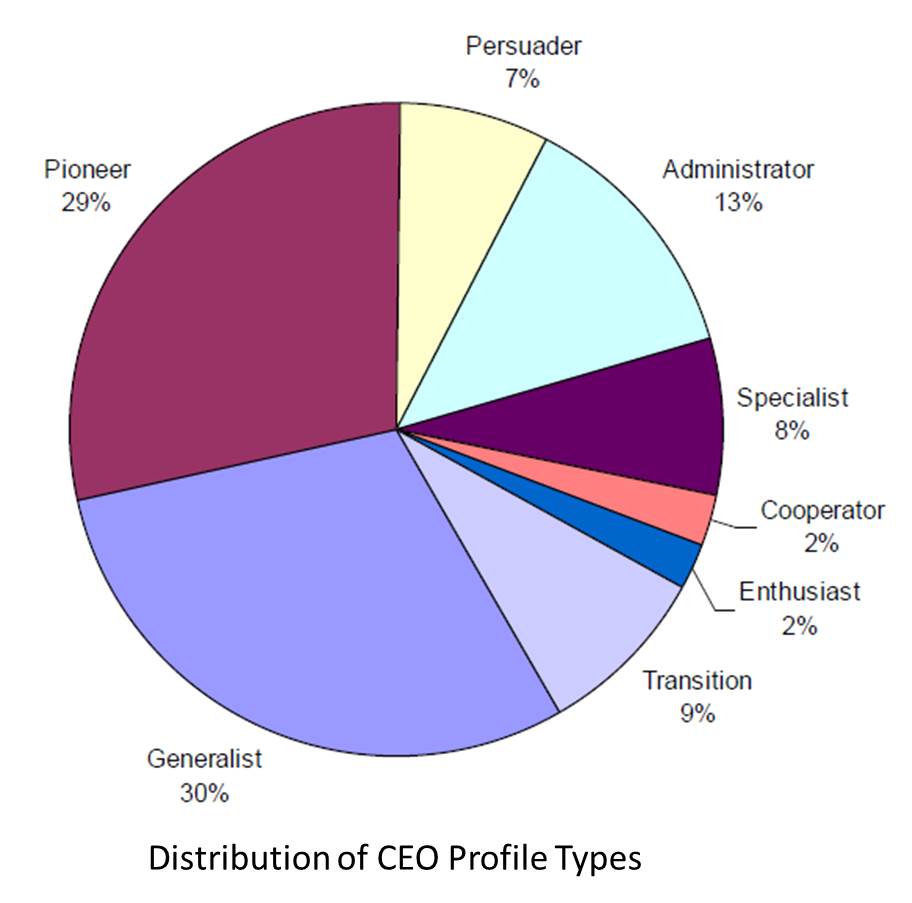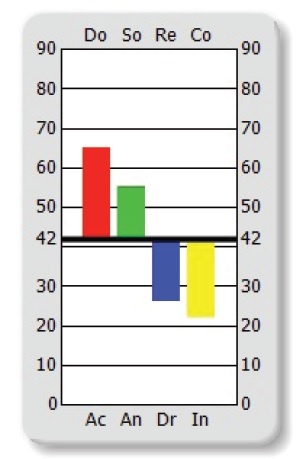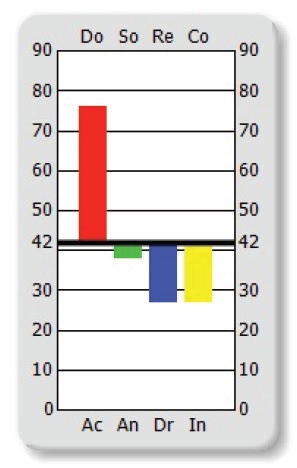What makes a good CEO? Of course, it’s different for each company and each stage a company may be in, but when we look at our data from profiles created for hiring executives, there are hints at what most companies are looking for when hiring CEOs.
We looked into that data and found the two most common leadership profiles.
To make sure that McQuaig assessments are accurate, the assessments have undergone a lot of testing by third-party experts. The results of all that testing is compiled in something we call the McQuaig Technical Manual. A big chunk of the “manual” consists of the results highlighting all of the studies that have been done over the years to validate the reliability our assessments provide.
It’s from some of these tests that we see common leadership profiles emerge and get a hint of what makes a good CEO.
In our studies, we’ve found that the two most common leadership profiles are what we call the Generalist profile and the Pioneer profile.
 For the sake of context, there are seven core personality profiles that capture 88% of the population. Nearly 60 percent of those in senior leadership roles are one of these two profile types.
For the sake of context, there are seven core personality profiles that capture 88% of the population. Nearly 60 percent of those in senior leadership roles are one of these two profile types.
The Two Most Common Leadership Profiles
 Generalist. 30 percent of CEOs were found to be this profile type (compared to 20 percent of the total population).
Generalist. 30 percent of CEOs were found to be this profile type (compared to 20 percent of the total population).
Key personality traits of a Generalist:
- Competitive, ambitious and goal oriented
- Welcomes responsibility and authority
- Restless and energetic, with a lot of drive and sense of urgency to get things done
- Independent, persistent and decisive, wants to take charge and show initiative
- Sociable and outgoing, a good communicator and persuasive; understands people and enjoys selling ideas to them
- On the other hand, will need plenty of challenge and opportunity to satisfy them and is likely to be dissatisfied unless achieving goals
- Dislikes routine and detail although may be good at it
- Dislikes close supervision
- More oriented towards working with people than with ideas and methods
 Pioneer. 29 percent of CEOs are Pioneers (compared to 14 percent of the total population).
Pioneer. 29 percent of CEOs are Pioneers (compared to 14 percent of the total population).
Key personality traits of a Pioneer:
- Typically competitive, ambitious and goal oriented, to the point of being aggressive if not managed effectively
- Welcomes responsibility and authority
- Restless and energetic, has the drive and sense of urgency to get things done
- Independent, persistent and decisive, wants to take charge and show initiative
- Tends to be logical, analytical, practical and realistic, will base decisions on facts rather than feelings
- Not generally a “people person” they are likely to be abrasive and have people problems occasionally
Why Knowing this is Important
If you want to hire, or develop, the right kind of leader it’s important to know what makes that person tick. Just because these are the two most common profile types for leaders doesn’t mean that one of them is right for a leadership role you’re trying to fill. You have to know what will enable success for your company.
Our customers use a tool called the Job Survey to create a behavioral target for a role. This profile captures and explains the traits someone will need to succeed in a role. Our system will then compare candidates’ profiles to that target and provide a Job Fit Analysis rating. Our clients use that, and a candidate’s profile to direct their probing during interviews to help them make a more informed hiring decision.
In the case of developing existing employees, the same concepts apply. They can identify which employees might be a good fit for a leadership role and work with employees to develop the skills that will lead to success in a leadership role.
But it all starts by figuring out what you need and creating that benchmark or target.
How do you identify leadership needs in your company?
{{cta(’14a4b30c-39cb-4f24-bc0d-d8d825c22a66′,’justifycenter’)}}




